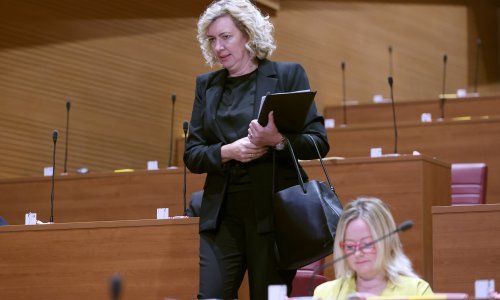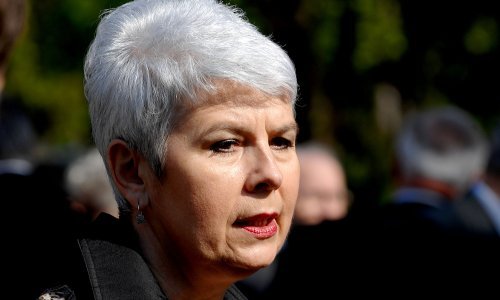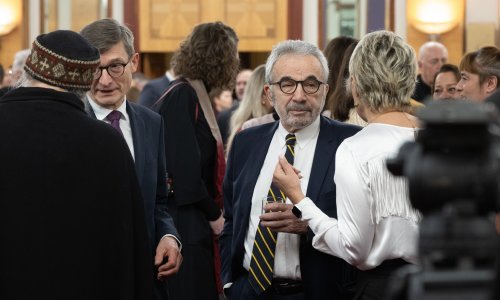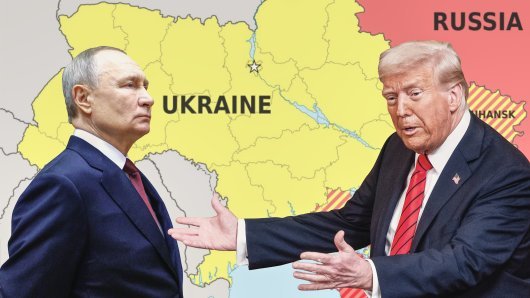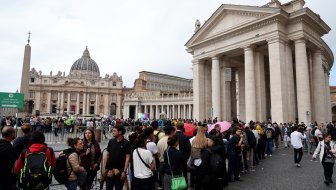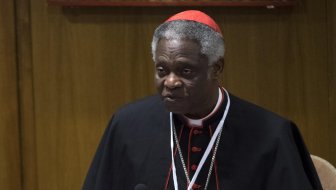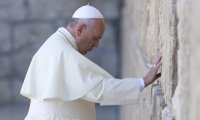President Ivo Josipovic said on Tuesday "the time has come in Croatia, too, when World War Two will stop being part of daily politics," while Prime Minister Jadranka Kosor said peace and progress could be ensured only on the firm foundations of antifascism.
They were speaking in Brezovica Forest near Sisak, 50 km southeast of Zagreb, on the occasion of Antifascist Struggle Day.
Josipovic said "the time (has come) when it will be clear that antifascism is a value we inherited in World War Two and when it is clear who was who in that war, but also the time when we will have compassion for every lost life, when every casualty will have a name and a visible and dignified grave."
He added that "unfortunately, we in Croatia still haven't valorised our past and there are too many of those who downplay the importance of the antifascist struggle."
Underlining that he is proud of the victory of "our Partisan fathers and grandfathers" and grateful that they put Croatia among the victors of WWII, Josipovic said he especially appreciated "that they understood that the time has come when antifascism does not mean only preserving the legacy of the World War Two struggle, but also readiness to forgive, readiness to show compassion at all graves, including for those who were killed at the hands of the winners."
He particularly thanked Croatian antifascists "who came with me to the execution site of members of defeated armies and civilians who had fled with them, thus showing the strength of the winners and noble compassion."
Josipovic went on to say that "we are not always principled and consistent in acknowledging antifascism and the role of antifascists," and appealed for "making the status of antifascist fighters and Homeland War (1991-95) veterans equal in principle." He called on "the government and parliament to put the rights of NOB (WW2 People's Liberation Struggle) fighters to the appropriate level, in accordance with the Declaration on Antifascism."
The president reminded that parliament's agenda recently included a bill which should provide for uncovering and commemorating crimes committed after WWII, and appealed "on the Croatian Sabor and the bill's sponsor to avoid the raising of new confrontations and unilateral interpretations of history."
"I would like the final version of the law to be in accordance with historical reconciliation. I would like a law that won't forget the many victims of Fascism and Nazism, the locations of whose graves are still unknown, unidentified victims, such as those in Jadovno, so as not to forget that hundreds of monuments to those killed in WWII by occupying troops and those who joined them have been demolished, so as not to forget that those monuments have to be renovated too," said Josipovic.
Speaking on behalf of the government, under whose auspices the commemoration in Brezovica was held, PM Kosor said the members of the First Sisak Partisan Unit and Croatian antifascists had unequivocally demonstrated the Croatian people's commitment to freedom-loving ideals, contrary to the (1941-45) Ustasha regime.
June 22 is the lasting symbol of the Croatian people's commitment to freedom and peace, the freedom of every man and every nation, which is the firm foundation of the present-day free, democratic and European Croatia, said Kosor.
"The government resolutely rejects and condemns any attempt at historical revisionism and rehabilitation of the fascist ideology, of any form of extremism, totalitarianism and radicalism. As Croatian prime minister I will never tire of repeating that the Ustasha regime was a regime of evil, hatred and intolerance in which people were abused and killed only for being different. I condemn in the strongest terms the crimes committed under the Ustasha regime, crimes which cannot be justified, as there is no goal that can be achieved or justified with crime," said Kosor.
She stressed that in this sense she welcomed Josipovic's recent "paying of respects to the victims of the policy of revenge."
"We must close for good the chapter of fighting for a better past. We want to and must direct our vision only to a future of peace and progress that we can ensure only on the firm foundations of antifascism, on the foundations of the victory of good, therefore any attempt to discredit antifascism is also an attempt to discredit the Croatian state and its future as an equal actor in united Europe," said Kosor.
She stressed that there was no doubt about Croatia's "huge contribution" to the struggle against fascism or about antifascism as a component of Croatia, whose values she said were permanently affirmed in the foundations of its statehood and sovereignty via the original foundations of the Constitution and the Declaration on antifascism.
The Homeland War victory against the policy of former Yugoslav President Slobodan Milosevic and Serbian aggression, on which independent and democratic Croatia is based, reaffirmed antifascism and its universal and lasting values, Kosor said, thanking all Croatian soldiers killed while defending Croatia in the Homeland War.
Speeches were also delivered by Parliament Deputy Speaker Neven Mimica and Chinese Ambassador Shen Zhifei, among others.
Josipovic, Kosor, Mimica, many state and party delegations as well as antifascists from Bosnia-Herzegovina and Italy laid wreaths at the monument to the First Sisak Partisan Unit in Brezovica forest.
At the ceremony, Josipovic also decorated several prominent antifascists.
Also today, former President Stjepan Mesic addressed an antifascist ceremony in Tuhobic, near the northern Adriatic city of Rijeka.





